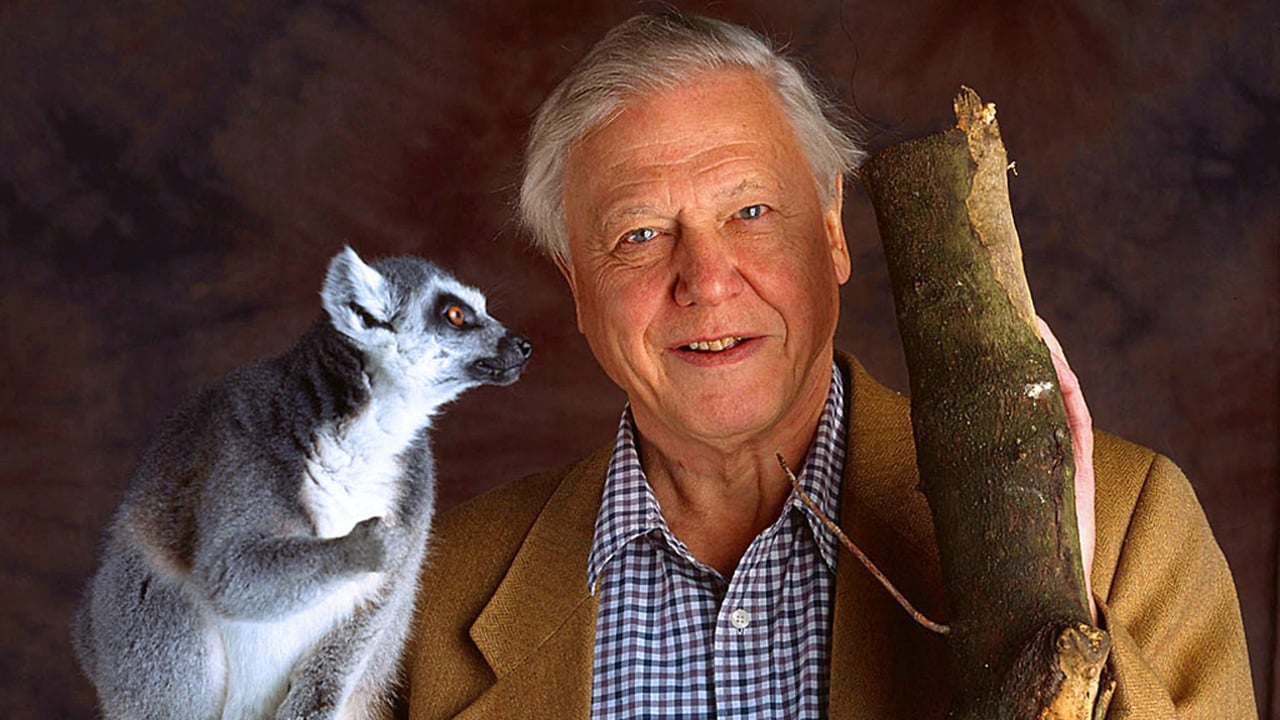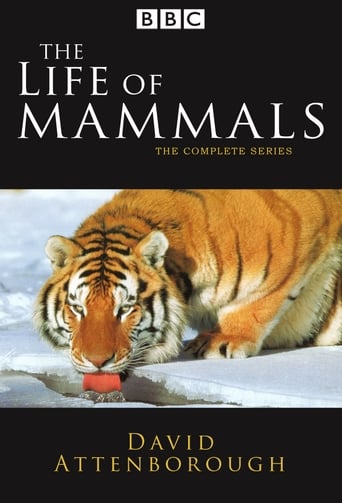

Fantastic!
... View MoreCrappy film
... View MoreA great movie, one of the best of this year. There was a bit of confusion at one point in the plot, but nothing serious.
... View MoreOne of the film's great tricks is that, for a time, you think it will go down a rabbit hole of unrealistic glorification.
... View MoreThe reason this is the best is because it covers the mammal world. Our world, and therefore it is fascinating. It starts with monotremes and marsupials, in an episode all about Australian animals and some others from the Americas. This is a great idea as it establishes mammals and gets the ones different to normal mammals covered and out of the way. Then is the insect eater episode. This episode isn't perfect, it's charm lies within the fact that they are covered in a way never before covered. It probably was the first hedgehog sex scene ever filmed, the first to show anteaters and armadillos eat food up close, possibly the best bit is the bat scene. Then are plant eaters, which never interested me, but they find it hard to bore me in this. The African elephant scene, the scene with the plant eater's method of escape and fighting, which excited me. After is the story of rodents. Here they aren't presented as annoying little rats, but complex, amazing creatures. But then comes the best 4 Attenborough episodes. The thrilling meat eater adventure. The story of the contradiction-filled omnivores, the aquatic action of Return to the Water (possibly that's biased by my love of being underwater) and the Attenborough peak-Life in the Trees, the story of mammals who enjoy the high-life. The penultimate episode focuses on monkeys, cute, fascinating and funny. But the finale is truly mind- blowing. This series is like Highway 61 Revisited by Bob Dylan. Starts with powerful stuff, an enjoyable middle, the exciting peak near the finale, the modest penultimate song. And then Food For Thought, the Desolation Row of documentaries. Reveals suffering humans cause on others. Starts with no problem against humanity, and then suddenly reveals the powerful humanity that causes so much suffering. The haunting message is truly done in a powerful method. David Attenborough is at his peak in this mind-blowing series, very exciting, and done like no other documentary.
... View MoreGood series. I'm loving this series which will teach you something new. Especially this nice way with close shots and many details.The Life of Mammals look for me little older, than filmed in 2002, it look as something +- 1990 or similar quality. Because it, my vote for this beauty series isn't higher. The quality isn't so high, how it may be...In summary this is good education film about mammals, each its part is well separated.Comments are well and not too scientific, so this film may be good for all age groups especially the youngest ones.For me personally may be the film little more scientific. I'm see his main purpose to teach kids in elementary school. But its good for older too...
... View MoreAS on Feb.5,'03 I sat through the last episode of The Life of Mammals on BBC1, switching off the TV, I was convinced that this had to be the most impressive documentary series on nature and life, more particularly on mammals, for the moment the most successful species on the planet. It is next to unbelievable that, after the myriads of documentaries on practically every animal, Attenborough still manages to come up with a documentary that never ceases to amaze. And this is not only because many images were first-timers. I guess it is because it focuses on animals that are closest to us, and are therefore often regarded as less 'exotic', and because this series proves us dead wrong in that respect, that this is such an amazing piece of film. But there's more:Despite the fact that the images range from great to downright unbelievable, this is perhaps not the single feature that makes this series unique. It is the way the story is told. There's of course the never-topped David Attenborough. But, because the story loosely unfolds around the evolutionary stages in the life of mammals (beginning with the platypus), AND at the same time manages to pull it off to show you the whole of the variety of mammals around the world without losing track of the scope of each episode, you get a real glimpse of what biodiversity means. Furthermore, the series really makes the case of evolutionary theory in a crystal clear way. The in and of itself very simple principle of evolution often gets misinterpreted, e.g. when one starts to think of evolution as having a 'goal'. Since the main issue here is the power to adapt of mammals, the focus is, more than ever, on the importance of the environment as the steering force towards either many specialized species or less generalists, continuously flowing from one mode to the other.What's more, the series really makes it clear how evolution gradually has shifted from selection on the basis of innate predispositions, to selection on the basis of the ability to learn during the lifetime, which makes a species much more able to adapt itself to environmental pressures and, in the end, enables them to overcome them. And then, at the end of the series, which focuses on the great apes and, ultimately, us humans, the whole story draws together superbly. I wondered how they would pull it of: would they preach about impending doom due to humanity's estrangement of its own nature, or would they just sing the hosanna of this marvelous little zoo we live in? Instead, Attenborough avoids these pitfalls. On the one hand he makes it clear that our behaviour and the way we treat our planet is nothing but the very natural consequence of evolutionary pressures that, for the moment, have put us on top of the pyramid, and this in a relatively short span of time. On the other hand, he does suggest that, if it were only BECAUSE we top the pyramid, we do have to take care that this environment which is responsible for who and what we are doesn't crumble under the pressure of its own success-story. Maybe it's about time that we think about constraining our own numbers?In short, this series is a must for anyone with even a passing interest in the very nature of life in all its diversity or anyone needing arguments to convince people of the why of caring for nature. I'll buy it as soon as it 's out. And I knew that from the third episode. A classic.
... View MoreThis giant documentary series is quite simply astounding. The 10 part series should stand as one of the most exhaustive filmed studies of mammals ever made. And, yes, the film covers the most wide spread mammal of all -- humans.What sets this film apart from all others are the messages the film is trying to convey. It is not content with simply showing us animals in action, but at every turn tries to make us realize the place the animals shown play in relation to our own mammal species -- homo sapiens.In the first few episodes, this message is not so clear, because the focus is on small mammals like anteaters and beavers. Gradually, though, the film focuses on primates and ends with two hour long episodes about monkeys and apes that are at the same time moving and deeply disturbing.Some of the footage of chimpanzees is so violent and disturbing it makes you look at humans in a whole new light.Throughout is footage that is completely unique. Some of the footage captures images never seen before by anybody. Some of it shows us things not normally shown before. Every show was filled with facts and information that I had never heard before and by the end I felt enriched beyond belief.Finally, I would like to point out that this film stands as one of the greatest proofs of evolution I have ever seen. Although the film never comes right out and specifically talks about evolution, it is a subtext throughout the 10 part series. Not that I didn't believe in evolution before I watched this, but after watching this the mechanics of evolution are so clear that I would be amazed anybody watches this series and is still skeptical enough to consider evolution a 'theory.'It is a great piece of documentary film-making. I hope that all homo sapiens get a chance to see this film.
... View More